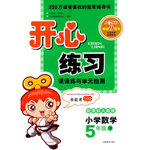题目内容
Only three local students won Chinese Blog(博客)Competition. And 15 of the 18 awards went to students from China.
170 students’ task: to get a fully-designed blog up and running, complete with many postings based on a theme of choice—all written in Chinese.
Themes ranged from local opinions-such as the usage of Singlish, education and whether Singapore can be a cultural centre-to food blogs.
The entries were judged on Language proficiency(熟练程度)and the quality of writing, as well as the design and level of exchanging ideas with readers.
Academics(学者) from the National University of Singapore and the SIM University IT experts, and a journalist from Chinese newspaper Lianhe Zaobao in Singapore made up the judges.
In the end, only three Singaporean students made it to the award list—the rest of the awards were swept up by students from China.
“No surprise, ” said Mr. Chow Yaw Long, 37, teachers in charge from Innova Junior College, which organized the event. “Although the topics were local subjects, the foreign students were generally better in terms of the content of the posts and their grasp of the Chinese language. ”
One of the three local students winning the first prize in the Best Language Award was blogger Christina Gao 19, from the Saint Andrew’s Junior College, who spared no effort in researching for and writing her blog. Each entry took her between five and seven days to produce, complete with pictures and even podcasts(播客).
Her advice for bloggers is: Be responsible(负责任的).
“Some bloggers out there only seek to blame(责备) the authorities and other bloggers.” Said Miss Gao. “I think they lack responsibilities and there is no value to their posts.”
72. The competition was organized by ___________.
A. the National University of Singapore B. Chinese newspaper Lianhe Zaobao
C. the Saint Andrew’s Junior College D. Innova Junior College
73. Which of the following is TRUE according to the passage?
A. Not all the themes were about local subjects.
B. Chinese students won most of the awards.
C. The blogs could be written in Chinese or Singlish.
D. The judges were from universities in Singapore and China.
74. What Miss Gao said suggests that ___________.
A. she likes to blame the authorities B. she thinks highly of the others’ blogs
C. she has a sense of responsibility D. she loves to read valuable posts
75. The passage in mainly about ___________.
A. how Chinese students won the awards in the competition
B. why bloggers should take responsibility for their blogs
C. what the result of the competition was
D. how Miss Gao won the first prize in the competition
【小题1】D
【小题2】B
【小题3】C
【小题4】C

 开心练习课课练与单元检测系列答案
开心练习课课练与单元检测系列答案 开心试卷期末冲刺100分系列答案
开心试卷期末冲刺100分系列答案In the country guests tend to feel they are not highly __________ if the invitation to a dinner party is given only three or four days before the party date.
| A.admired | B.expected | C.wished | D.regarded |
Only three local students won Chinese Blog(博客)Competition. And 15 of the 18 awards went to students from China.
170 students’ task: to get a fully-designed blog up and running, complete with many posting based on a theme of choice—all written in Chinese.
Themes ranged from local opinions-such as the usage of Singlish, education and whether Singapore can be a cultural centre-to food blogs.
The entries were judged on Language proficiency(熟练程度)and the quality of writing, as well as the design and level of exchanging ideas with readers.
Academics from the National University of Singapore and the SIM University IT experts, and a journalist from Chinese newspaper Lianhe Zaobao in Singapore made up the judges.
In the end, only three Singaporean students made it to the award list—the rest of the awards were swept up by students from China.
“No surprise.” said Mr. Chow Yaw Long, 37, teachers in charge from Ianova Junior College, which organized the event. “Although the topics were local subjects, the foreign students were generally better in terms of the content of the posts and their grasp of the Chinese language.”
One of the three local students winning the first prize in the Best Language Award was blogger Christina Gao,19, from the Saint Andrew’s Junior College, who spared no effort in researching for and writing her blog. Each entry took her between five and seven days to produce, complete with pictures and even podcasts(播客).Her advice for bloggers is: Be responsible. “Some bloggers out there only seek to blame the authorities and other bloggers.” Said Miss Gao. “I think they lack responsibilities and there is no value to their posts.”
【小题1】The competition was organized by _______
| A.the National University of Singapore |
| B.Chinese newspaper Lianhe Zaobao |
| C.Ianova Junior College |
| D.the Saint Andrew’s Junior College |
| A.Chinese students won most of the awards. |
| B.Not all the themes were about local subjects |
| C.The blogs could be written in Chinese or Singlish. |
| D.The judges were from university in Singapore and China. |
| A.she likes to blame the authorities |
| B.she has a sense of responsibility |
| C.she thinks highly of the others’ blogs |
D.she loves to read v aluable posts aluable posts |
One day I took several pairs of shoes to the shoemaker to be mended. After a week I went to take them back. Four months later, my husband and I were invited to dinner. I took out a pair of shoes. I hadn't worn them since they were mended. I put one shoe on my right foot, and then I put the other on my left. But I felt that the other one was on the wrong foot. I took both shoes off for a closer look. They were nearly the same style (式样), color and size, but each was for the right foot. Then I thought of the shoemaker. Though I was sure he wouldn't remember me after such a long time, I called him. "Thank goodness you called me at last!" He said happily. "An angry woman has been troubling me for months!"
【小题1】How many pairs of shoes did the woman take to the shoemaker to be mended?
| A.One shoe. | B.Two pairs of shoes. |
| C.Only three shoes. | D.Some pairs of shoes. |
| A.was very careful with his work |
| B.mistook one of the woman' s shoes for the other woman' s |
| C.forgot the woman because it happened a long time ago |
| D.was troubled by two men |
| A.Yes, she did. | B.The story didn't tell us. |
| C.No, but her husband did. | D.No, she didn't. |
| A.sad | B.angry | C.glad | D.worried |
 d to stay in a hotel. It cost me $12.”
d to stay in a hotel. It cost me $12.”